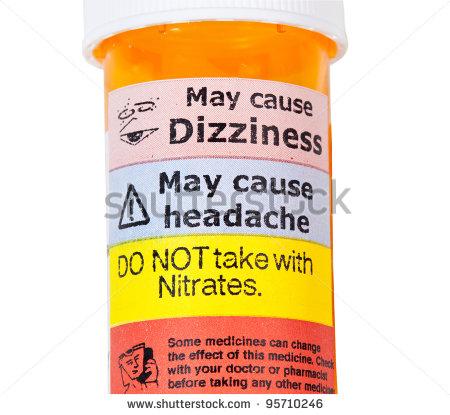
Many people think they have a drug allergy, when in fact what they have is drug intolerance. According to the CDC, approximately 10% of all U.S. patients report having an allergic reaction to penicillin, but fewer than 1% of the population is truly allergic to penicillins. Furthermore, approximately 80% of patients with penicillin allergy lose their sensitivity after 10 years, but continue to report the allergy.
An allergic reaction is an immune-mediated response to a drug, which leads to skin rash, face or throat swelling, difficulty in breathing, and in some cases, life threatening anaphylaxis. Drug intolerance, on the other hand, refers to common reactions such as nausea, headache, muscle ache, dizziness etc. It is important to specify the type, and severity, of each drug reaction because there is a difference in how each is treated. A serious allergic reaction warrants complete abstinence from an entire class of drugs, whereas mild allergic reactions such as itching do not require such drastic measures. In many instances, symptoms of drug intolerance resolve with passing of time, dose adjustment, or exchange to a similar agent.
Misclassifying all adverse drug reactions as “allergy” can have unintended consequences due to elimination of potentially life-saving medicines from use. The impact of this is particularly striking when it comes to antibiotics. Because of the limited of number effective antibiotics that target a specific organism, being allergic to one antibiotic can mean settling for non-preferred alternatives, which may be less effective and carry more adverse effects. Furthermore, it can result in unnecessary use of antibiotics with broad coverage for infections that have target-specific treatment. This contributes to the emergence of drug-resistant bacteria, making antibiotics less effective in the long run.
A recent study, published in Clinical Infectious Diseases, illustrates the impact of reported antibiotic allergy on hospitalized patients. The study focused on broad-spectrum antibiotics called beta-lactams, which include penicillins and several others that share a similar structural component (a beta-lactam ring). Beta-lactams are highly preferred in the treatment of various infections.
The study reviewed the medical records of 507 hospitalized patients, divided into two groups: those who reported allergy to beta-lactams and those who did not. When the researchers compared a composite of outcomes like hospital readmission for the same infection, drug-related adverse reactions requiring discontinuation, acute kidney injury, and C. diff infection, they found the following:
- While 25 people had the preferred antibiotic withheld because of a reported allergy, “13 (52%) of them did not get that drug even though they reported non-severe prior reactions”. This finding suggests that some doctors may be apprehensive about prescribing certain antibiotics once allergy - of any type - is reported. This highlights the importance of documenting the severity of allergic reactions before ruling out a drug.
- Those who did not get the preferred antibiotic had three times the rate of antibiotic-related adverse events from to the alternative antibiotics they received, compared to their non-allergic counterparts. But those who reported allergy - and still got the antibiotic - had the same rate of adverse events as those without reported allergy. Meaning, the reported reaction was likely not a true allergy.
What you can do about a true Penicillin allergy
Doctors can do a skin test to confirm if someone is truly allergic to Penicillin. People with confirmed penicillin allergy can also undergo desensitization treatment so that they can take the antibiotic safely in the future. However, these treatments are not available at all hospitals or doctors’ offices and may require seeing a specialist. Consult with a physician in times of good health, because in the setting of acute illness, time and testing resources may be limited.
When it comes to providing details about drug reactions, more is better. When doctors have all the information, they are better equipped to weigh risk-vs-benefit in making treatment decisions.



